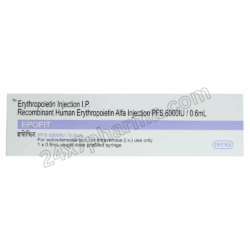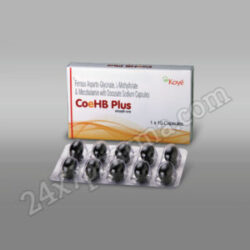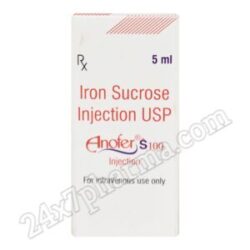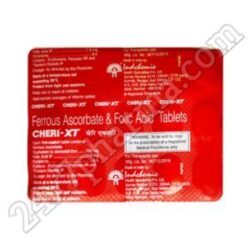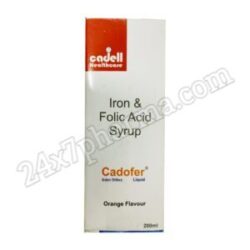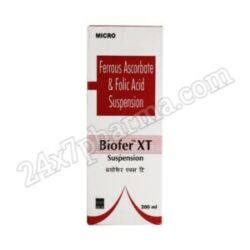What is Epofit 10000 IU Injection?
Epofit 10000 IU injection is a pharmaceutical product containing Epoetin alfa, a synthetic form of erythropoietin, a hormone naturally produced by the kidneys. This injection is primarily utilized to stimulate the production of red blood cells (RBCs) in patients with anemia, especially those suffering from chronic kidney disease or undergoing chemotherapy. By enhancing the body’s ability to produce red blood cells, Epofit helps alleviate symptoms of anemia, including fatigue, weakness, and pallor.
How Does Epofit 10000 IU Injection Work?
Epofit 10000 IU injection works by mimicking the action of natural erythropoietin. Erythropoietin stimulates the bone marrow to produce more red blood cells. When administered, Epofit binds to erythropoietin receptors on erythroid progenitor cells in the bone marrow, promoting their proliferation and differentiation into mature red blood cells. This process is crucial for increasing hemoglobin levels and improving the oxygen-carrying capacity of the blood.
In patients with chronic kidney disease, the kidneys may not produce enough erythropoietin, leading to anemia. Similarly, chemotherapy can also cause anemia by suppressing the bone marrow’s ability to generate red blood cells. By providing an external source of erythropoietin, Epofit helps restore normal red blood cell levels, reducing the need for blood transfusions and enhancing the overall quality of life for patients.
Uses of the Epofit 10000 IU Injection
Epofit 10000 IU injection is prescribed for various medical conditions, including:
- Chronic Kidney Disease (CKD): It is commonly used to treat anemia associated with CKD, where the kidneys fail to produce adequate erythropoietin.
- Cancer Treatment: Patients undergoing chemotherapy often experience anemia due to bone marrow suppression. Epofit helps manage this condition, reducing fatigue and improving the patient’s ability to tolerate treatment.
- Surgery: In some cases, Epofit is administered before elective surgeries to boost red blood cell counts and decrease the need for blood transfusions during or after the procedure.
- HIV/AIDS: It may also be used in patients with HIV/AIDS who are undergoing treatment that affects the bone marrow’s ability to produce red blood cells.
Other Dosages
The Other Dosages with the Same Active Ingredient;
Side Effects of the Epofit 10000 IU Injection
Like any medication, Epofit 10000 IU injection may cause side effects. While not everyone experiences them, it’s essential to be aware of potential adverse reactions, which may include:
- Hypertension: Elevated blood pressure can occur, so regular monitoring is recommended.
- Headaches: Some patients report experiencing headaches after administration.
- Flu-like Symptoms: Fever, chills, or malaise may develop in some individuals.
- Nausea and Vomiting: Gastrointestinal disturbances can also occur.
- Injection Site Reactions: Pain, redness, or swelling may happen at the injection site.
- Serious Side Effects: Rarely, patients may experience serious complications like thromboembolic events (blood clots) or severe allergic reactions.
- Patients should report any unusual symptoms to their healthcare provider promptly.
Warning & Precautions
Before starting treatment with Epofit 10000 IU injection, several precautions should be considered:
- Medical History: Inform your healthcare provider about your complete medical history, especially if you have a history of hypertension, heart disease, or stroke.
- Regular Monitoring: Regular monitoring of hemoglobin levels and blood pressure is crucial during treatment to avoid complications.
- Pregnancy and Breastfeeding: The safety of Epofit during pregnancy or breastfeeding has not been established. Consult your doctor if you are pregnant, plan to become pregnant, or are breastfeeding.
- Dosage Adjustments: Dosage may need to be adjusted based on individual response, hemoglobin levels, and the underlying condition.
- Risk of Thrombosis: Patients with a history of thromboembolic events should use caution, as Epofit may increase the risk of blood clots.
- Not for Everyone: Epofit should not be used in patients with uncontrolled hypertension or pure red cell aplasia.
Frequently Asked Questions (FAQs)
Q1. Are there any dietary restrictions while using Epofit?
Ans: There are no specific dietary restrictions while using Epofit; however, maintaining a balanced diet is essential for overall health.
Q2. How long does it take for Epofit to show results?
Ans: Many patients may notice an improvement in symptoms within a few weeks, but the full benefits may take several weeks to months, depending on individual response.


